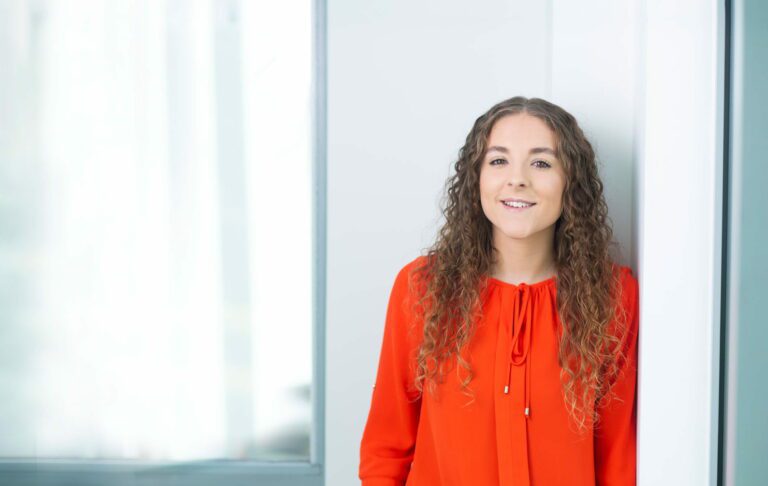Author
As we enter September, many aspiring lawyers are starting their training contracts. Many existing trainees will also reach the milestone of qualification. To help those new joiners, we have sat down with a number of soon to be qualified solicitors to hear their insights into the past two years.
Milli Clark is a final seat trainee, qualifying into the Family team in Exeter, having completed seats in the Family, Transactional Real Estate, Commercial & Regulatory Disputes and Corporate teams in the Exeter office.
Dan O’Sullivan is a final seat trainee, qualifying into the Corporate team in Bristol, having completed seats in the Commercial & Regulatory Disputes, Corporate, Employment and Transactional Real Estate teams, across the London and Bristol offices.
Henny Knott is a final seat trainee, qualifying into the Agriculture team in Bristol, having completed seats in the Asset Protection, Agriculture, Contentious Probate and CRD teams, across the Exeter and Bristol offices.
-
What was the highlight of your training contract?
Milli: attending a Financial Dispute Resolution Hearing with Counsel, whilst representing a party to Financial Proceedings on divorce, and negotiating a settlement whilst at Court.
Henny: interacting with clients. I have had plenty of opportunities to attend client meetings, mediations, court hearings and even site visits to our client’s farms during my training contract. Client contact not only allows you to make connections more easily but it can also provide a great sense of motivation for what it is we are striving to achieve as a team for our clients.
Dan: gaining experience in areas of particular interest, such as Corporate and Employment. Undertaking a training contract at Michelmores provides you with the opportunity to experience a wide range of seats within the three core Groups (Business, Real Estate and Private Client).
-
What was the biggest learning point?
Milli: learning to say ‘no’. As a trainee, you want to be helpful and to impress your team. This can make it difficult to say ‘no’. However, if you are asked to help with a task, but you are at full capacity, it is unhelpful to say ‘yes’ to everyone because it is likely you’ll miss one (or more) deadline(s) and/or do a poor job because you are rushing to complete the task. If at full capacity but asked to assist with a task, you should prioritise the most urgent task. If you are not sure which task is more urgent, you should ask the matter lawyers. You should keep everyone that you are working for updated, if for example, you are told that a specific task is urgent and should be prioritised above everything else.
Henny: helping to prepare for a proprietary estoppel case in the High Court during my Agriculture seat. I learnt a great deal about the procedure and formalities of court, from disclosure to witness statements to the intricacies of trial bundles. We had to work efficiently as a team and show perseverance in order to meet deadlines and ensure that everything was covered in the run up to trial.
Dan: adapting to a new seat every six months, particularly when the prior seat was not overly relevant to the next. Each team has a different way of working and so adapting to this quickly is essential. The clients and third parties you deal with also differ from seat to seat, meaning you need to tailor your approach to correspondence and work accordingly.
-
What was the most unexpected thing you encountered?
Dan: representing a ‘celebrity’ client at a mediation.
Milli: I was shocked by the sheer volume of documents that had to be reviewed as part of a disclosure exercise. The job could not be done by humans alone. Instead, we had to use an online platform with integrated AI to streamline the process. I hadn’t anticipated the size of these exercises to be so big.
Henny: I had not appreciated how many opportunities there would be for trainees to take on responsibility for matter related work (while maintaining a great level of supervision) and also for promoting the firm externally. Whether that be by writing articles for the firm’s website or publications, attending recruitment events, or networking with potential referrers and clients for business development purposes.
-
What have you been involved with outside of client matters?
Milli: I have been involved in our Mainstream initiative. Mainstream is a network for business angel investors established by Michelmores in 2019 to help accelerate the growth and diversity of angel investing, particularly in the Southwest. As part of my involvement in the scheme, I was able to watch applicants pitch their business ideas to our network of members. It was interesting to see the range of exiting and innovative business ideas presented. I also sat in on the selection panels, during which investors discussed the applications received and decided which applicants to put forward to pitch. It was very insightful to be a part of these discussions and learn what factors the investors consider when deciding whether to invest in a business. It has also been useful because it has given me an opportunity to start to develop connections with external people.
Henny: I have had the opportunity to attend many different BD events, including a Women in Rural Practice event in Oxfordshire where we learnt about sustainable farming practices and tasted their delicious local produce, and a NatWest Boost event in Exeter where I listened to a fascinating presentation by a successful make up artist and networked with local businesspeople in the southwest. I have also been a part of the Charity Partnership Group during the latter part of my training contract. Being involved in non-matter related work is a great way to increase your profile within the firm and with a wider network of businesses and individuals in your practice area. It can also help to bring a fresh perspective and inspiration to your client work.
Dan: In my Corporate seat I acted as the team’s Knowledge Lawyer which involved delivering monthly presentations on case law updates, legislative changes, and other points of interest. I also delivered a training session to the Agriculture team on corporate structures. This was great for developing a wider knowledge of the sector whilst also being really beneficial for developing presentational skills, communication, confidence, etc.
-
If you had to do it again, what would you do differently?
Milli: In my last seat, I have been travelling to the Bristol office on a regular basis. Prior to this, I had only visited the Bristol office and the London office, once each. Travelling to the Bristol office more regularly has allowed me to meet and develop connections with colleagues in the Bristol office who I might not otherwise have met. I have also experienced what it is like to work in another city. If I had to do the training contract again, I would have taken advantage of a greater number of opportunities to visit the other offices.
Dan: I would seek out even more business development opportunities throughout my training contract. These are great for demonstrating non-fee earning responsibilities, as well as growing both your internal and external network.
Henny: I have learnt a lot from each of my seats and from everyone who I worked with during my training contract. All of the choices and twists of fate have brought me to where I am today. So, I genuinely would not have changed anything about my experience.




